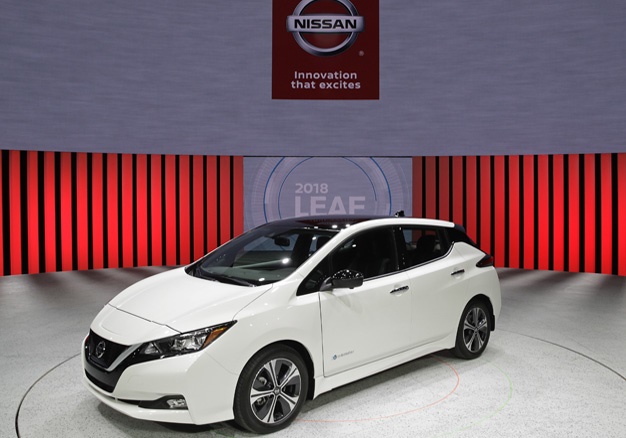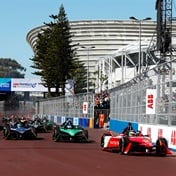
Chiba - Nissan says its new Leaf electric car can driver further on a charge and comes with a new type of technology and the possibility of single-pedal driving.
Whether it can catch on with anyone but the most zealously green-minded remains to be seen.
The zero-emissions vehicle — which Japanese automaker Nissan - unveiled in the US late on Tuesday (September 5) and in a Tokyo suburb on Wednesday — promises a range of 400km in Japanese driving conditions before needing another charge. That's up from 280km for Leaf models on sale now. The distances depend on driving conditions and how much other items in the car such as heating are used.
Nissan South Africa says: "The new Nissan Leaf debuts today in Japan, it will officially be launched later this year at the Tokyo motor show where the global roll out plan will be announced.
"Our local product planning team is in discussion with our parent company regarding plans for introduction in Southern Africa. At this point we are looking towards the last quarter of CY18, however this is not confirmed."
Breakthrough in battery technology
Analysts say the biggest obstacle for electric cars' becoming more widespread is their limited range per charge. Several breakthroughs in battery technology are likely needed before they become affordable and practical for regular consumers.
Koichi Sugimoto, analyst at Mitsubishi UFJ Morgan Stanley Securities Co. in Tokyo, says many automakers are selling green models because of tightening emissions regulations, especially in Europe and California, rather than because of what he called "natural sales growth."
"There really is no outstanding attractive quality about an electric vehicle," he said, noting drawbacks such as finding charging stations, as well as the time needed to charge.
The focal point of Leaf is its e-powertrain, which now offers 110kW/320Nm.
Charging time remains 40 minutes for the new Leaf, even with the quick charging. With normal charging, 16 hours would be needed for a three-kilowatt system, and eight hours at six-kilowatts.
Sugimoto said: "It's more about an effort to make a better society, so we are looking at a decade or two decades ahead."
The Leaf has one pedal that accelerates and slows the vehicle based on how much the driver pushes it, reserving the separate brake pedal for emergencies.
The feature is made possible by the switching on-and-off feature of electric gadgetry, unlike the more standard internal combustion engine, and it's already available on other electric vehicles like those from US maker Tesla.
ProPilot
The Leaf also offers a technology not directly related to its being electric - a semi-autonomous drive feature that Nissan calls ProPilot can be switched on during single-lane highway driving.
It also parks itself, taking control of the steering, accelerating and braking, sliding into a parking spot or parallel parking.
The Leaf's restyled look is not that different from its past design, billed as sleek and aerodynamic to maximize range. The Leaf remains an important part of Yokohama-based Nissan's branding as a symbol of the company's commitment to the environment.
Other Japanese automakers have not been as bullish on electric vehicles. Toyota has been more aggressive about gas-electric hybrids, exemplified in its hit Prius model, and is expanding to plug-in hybrids, as well as hydrogen-powered vehicles.




 Publications
Publications
 Partners
Partners















